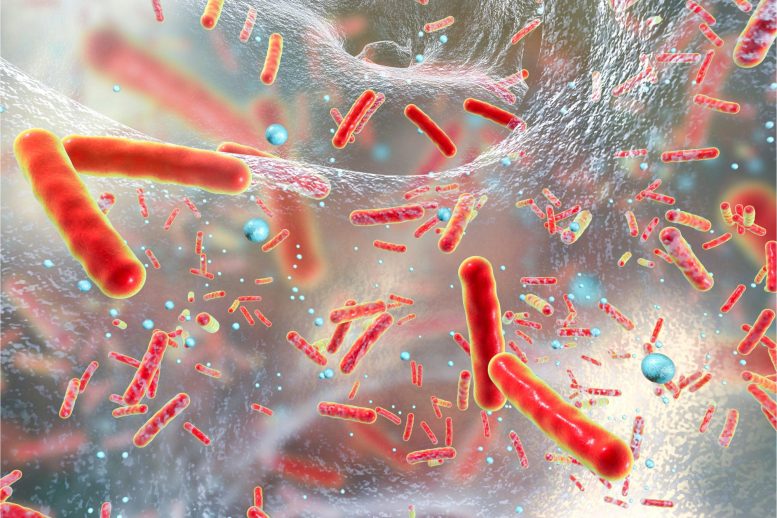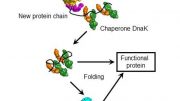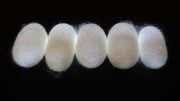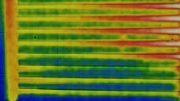
Scientists have engineered bacteria to produce pN-Phe, a non-standard amino acid with potential medical applications. Future work will optimize this process and explore its potential in vaccines and immunotherapies.
The results, which have been published in the journal Nature Chemical Biology, lay the groundwork for the future development of unique vaccines and immunotherapies.
Amino acids serve as the foundational elements of proteins, vital to the optimal functioning of biological structures. Proteins in all life forms are composed of 20 core amino acids. However, nature offers an impressive variety of over 500 distinct amino acids. Additionally, a plethora of synthetic amino acids have been created by human ingenuity. These alternate amino acids hold promise in the development of innovative pharmaceuticals and therapeutic treatments.
Now, University of Delaware researchers in the lab of Aditya Kunjapur, assistant professor in the College of Engineering’s Department of Chemical and Biomolecular Engineering, have engineered bacteria to synthesize an amino acid that contains a rare functional group that others have shown to have implications in the regulation of our immune system. The researchers also taught a single bacterial strain to create the amino acid and place it at specific sites within target proteins. These findings, published in Nature Chemical Biology, provide a foundation for developing unique vaccines and immunotherapies in the future.
The Kunjapur Lab uses tools from synthetic biology and genetic engineering to create micro-organisms that can synthesize different types of compounds and molecules, especially ones with functional groups or properties that are not well represented in nature.
In this study, the researchers focused on para-nitro-L-phenylalanine (pN-Phe), a non-standard amino acid that is neither one of the twenty standard amino acids nor has been observed in nature. Other research groups have utilized pN-Phe as a tool to stimulate the immune system to react to proteins that it typically ignores.
“The nitro chemical functional group has valuable properties and has been underexplored by folks who are trying to rewire metabolism,” Kunjapur said. “pN-Phe also has a nice history in the literature — it can be added onto a protein from a mouse, delivered back to mice, and the immune system will no longer tolerate the original version of that protein. That ability has promise for the treatment or prevention of diseases that are caused by rogue proteins that the immune system struggles to lock onto.”
Genetic code expansion methods allowed the researchers to increase the “alphabet” of available amino acids encoded by DNA. By coupling metabolic engineering techniques with genetic code expansion, the researchers were able to create a system that produces nitrated proteins autonomously.
“Because of the nitro functional group chemistry, the amino acid that we picked as our target for this project was unconventional, and many scientists within our field may not have expected that it could be made using biosynthesis,” Kunjapur said.
The next step for this research is to optimize their methods to synthesize higher amounts of nitrated proteins and expand this work into other microorganisms. The long-term goal is to further refine this platform for applications related to vaccines or immunotherapies, efforts that are supported by Kunjapur’s 2021 AIChE Langer Prize and the 2022 National Institutes of Health Director’s New Innovator Award. To further support this long-term goal, Kunjapur and Neil Butler, doctoral candidate and first author on this paper, co-founded Nitro Biosciences.
“I think the implications are interesting, in that you can take a bacterium’s central metabolism, its ability to produce different compounds, and with a few modifications you are able to expand its chemical repertoire,” said Butler. “The nitro functionality is rare in biology and absent from the standard 20 amino acids, but we showed bacterial metabolism is malleable enough that it can be rewired to create and integrate this functionality.”
Kunjapur added, “Bacteria are potentially useful drug delivery vehicles. We think we have created a tool that could leverage the ability of bacteria to produce target antigens within the body and exploit the ability of nitration to shine a light on those antigens at the same time.”
Reference: “A platform for distributed production of synthetic nitrated proteins in live bacteria” by Neil D. Butler, Sabyasachi Sen, Lucas B. Brown, Minwei Lin and Aditya M. Kunjapur, 15 May 2023, Nature Chemical Biology.
DOI: 10.1038/s41589-023-01338-x
The research was funded by a grant from the National Science Foundation.









Be the first to comment on "Engineers Create Bacteria That Can Synthesize an Unnatural Amino Acid"